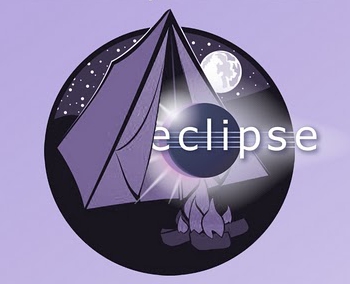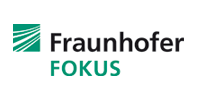Notice: This Wiki is now read only and edits are no longer possible. Please see: https://gitlab.eclipse.org/eclipsefdn/helpdesk/-/wikis/Wiki-shutdown-plan for the plan.
Eclipse DemoCamps November 2012/Berlin
Location
Fraunhofer FOKUS
Kaiserin-Augusta-Allee 31
10589 Berlin
Date and Time
November 26th 2012
Opening 5.30 pm
Presentations and Demos 6 pm - 10 pm
Organizer
Lars Martin, itemis AG
Tom Ritter, Fraunhofer FOKUS
Sponsors
This Eclipse DemoCamp will be sponsored by itemis AG, Fraunhofer FOKUS and the Eclipse Foundation.
- itemis is Eclipse strategic member and the leading company for model-driven software development.
- The Fraunhofer Institute for Open Communication Systems FOKUS is researching and developing demand-orientated solutions for partners in industry, research and public administration.
- Eclipse Foundation is a not-for-profit, member supported corporation that hosts the open-source Eclipse Projects.
If you or your company would like to sponsor the venue, please get in touch with Lars or Tom.
Agenda
If you would like to give a demo, please feel free to add it to the list. Should we receive more submissions than we can fit into the schedule, we will select the ones that we think are most interesting to the audience.
18:00 - 18:05 Opening
18.05 Let's try this again: Hibernate Code-Generation for Pragmatic Developers with HEDL, Mirko Seifert, DevBoost GmbH - Mirko Seifert
18.30 One for all: IDE and Workspace Provisioning with p3, Lars Martin, itemis AG - Lars Martin
18.55 GMF on the Internet, Arun Prakash & Grit Dudeck, Fraunhofer FOKUS - Arun Prakash & Grit Dudeck
19.20 - 19.50 Break
19.50 Refacola: Refactoring Constraint Language, or: why name refactorings are not that simple, or: how we developed a DSL with Xtext, Jens von Pilgrim, NumberFour AG
20.50 The Eclipse M2M IWG and Standards for the Internet of Things, Werner Keil, Creative Arts & Technologies - Werner Keil, Creative Arts & Technologies
21:20 Wrap Up
Details
If you added your demo to the list above, please add a short abstract to this list so people know what you will be talking about.
- Let's try this again: Hibernate Code-Generation for Pragmatic Developers with HEDL (Mirko Seifert, DevBoost GmbH)
- To ease the implementation of data models and to perform ORM, code generation is advertised as a solution for years already. Yet, ORM frameworks like Hiberante are far more popular than any code generation approach. Still, annotation-based frameworks such as Hibernate require a lot of boilerplate code writing. The Hibernate Entity Definition Language (HEDL) combines the benefits of ORM frameworks and code generation, by generating code for the Hibernate framework. Thus, HEDL is an excelent example of a pragmatic domain specific language (DSL), where the benefits of using DSLs and code generation for one important technical aspect of almost every Java software project can be directly observed (the average LOC ratio between the DSL and Java code is 1:100).
- In this talk, we will not only demonstrate HEDL in action, but also discuss the properties that make HEDL a popular and useful DSL. Furthermore, we give insights about how HEDL was developed and how you can extend and modify it for your needs.
- One for all: IDE and Workspace Provisioning with p3 (Lars Martin, itemis AG)
- Immer wieder kommt es im Entwickleralltag vor, dass neue Mitglieder zum Team hinzukommen. Immer wieder stehen diese Entwickler vor der Herausforderung, ihre Entwicklungsumgebung auf den Stand der anderen Teammitglieder zu bringen. Hier ein zusätzlich zu installierendes Plugin, dort eine Konfiguration der IDE. Und wie lautete der Zugang zum zentralen Issuetracker gleich nochmal? Eh man produktiv sein kann, vergehen gern Stunden oder gar Tage. Hier behilft man sich gern durch eine zentral gepflegte Dokumentation.
- Mit p2 bringt die Eclipse Plattform bereits einen Mechanismus mit, um das Provisioning von einzelnen Plug-Ins und deren Abhängigkeiten zu realisieren. Mit p3 wollen wir nun einen Mechanismus vorstellen, der auf den bekannten Eclipse Standards und Produkten wie etwa p2 aufsetzt, sich zusätzlich aber um das Provisioning der gesamten IDE und der zugehörigen Workspace Einstellungen bietet. Lange Ramp-up Zeiten für neue Teammitglieder sind damit Geschichte. Darüber hinaus können mit p3 firmenweit einheitliche Entwicklungsstandards besser etabliert und gesteuert werden.
- GMF on the Internet
- RAP offers a variety of powerful features to develop modern web applications. One such feature is the single sourcing feature which allows developers to reuse their code developed for desktop applications for the web without code duplication. In this session, we demonstrate an eclipse GMF application that is running the web, ergo, GMF on the Internet.
- Refacola: Refactoring Constraint Language, or: why name refactorings are not that simple, or: how we developed a DSL with Xtext
- In the context of a DFG project we (a team at the FernUniversität in Hagen) developed Refacola, a language for expressing constraint based refactorings. In this talk I will briefly demonstrate refactoring problems (they are harder than you probably expect -- search bugzilla for [rename] or [pull up] for examples) and constraint based approaches (one is, BTW, used by Eclipse refactorings). I will talk about my personal experiences with developing a DSL with Xtext and other model-driven tools, and how the DSL helped us (as researchers and tool developers) to focus on our domain (in this case refactoring).
- The Eclipse M2M IWG and Standards for the Internet of Things (Werner Keil, Creative Arts & Technologies)
- This session highlights how the M2M IWG can play a role in the Internet of Things and Distributed Sensor Web as well as related technologies like Smart Home or Automotive. We demonstrate how existing Java standards like JSR 256 (Mobile Sensor API) can be improved or replaced towards a new generation of Java Embedded and Mobile.
- Taking technologies like the IEEE 1451 "Smart Sensor" standard into consideration, as well as OGC standards like SensorML or The Unified Code for Units of Measurement (UCUM) allowing type and context safe data transfer using various formats and protocols, whether it is XML, JSON or specific M2M protocols like MQTT.
Who Is Attending
If you plan on attending please add your name and company to the list below.
- Mirko Seifert, DevBoost GmbH
- Lars Martin, itemis AG
- Tom Ritter, Fraunhofer FOKUS
- Christian Lange, GIPA mbH
- Markus Seltmann, GIPA mbH
- Mirko Streckenbach, Capgemini
- Kristine Jetzke, Biotronik SE & Co. KG
- Thomas Kipar, Humboldt-Universität zu Berlin
- Werner Keil, Creative Arts & Technologies
- Daniel Murygin, SerNet GmbH / verinice
- Kamran Mohtadi, TU Berlin
- Amir Matallaoui, TU Berlin
- Koenig, Jennifer
- Aleksander Kosicki, NumberFour AG
- Torsten Krämer, TU Berlin
- Christian Thöns, Bundesinstitut für Risikobewertung
- Thomas Lampart, Cinterion Wireless Modules
- Florian Denzin, Cinterion Wireless Modules
- Stephan Druskat, FSU Jena
- Jörg Staudemeyer, EITCO
- Ingo Mohr, Biotronik SE & Co. KG
- Bernd Giewolies, G&G
- Ramy Hardan, bitzeche GmbH
- Olaf Bigalk, GK-Software
- Jörgen Brandt, Bundesinstitut für Risikobewertung
- Rico Basekow
- Lukas Olbrich, sablono



